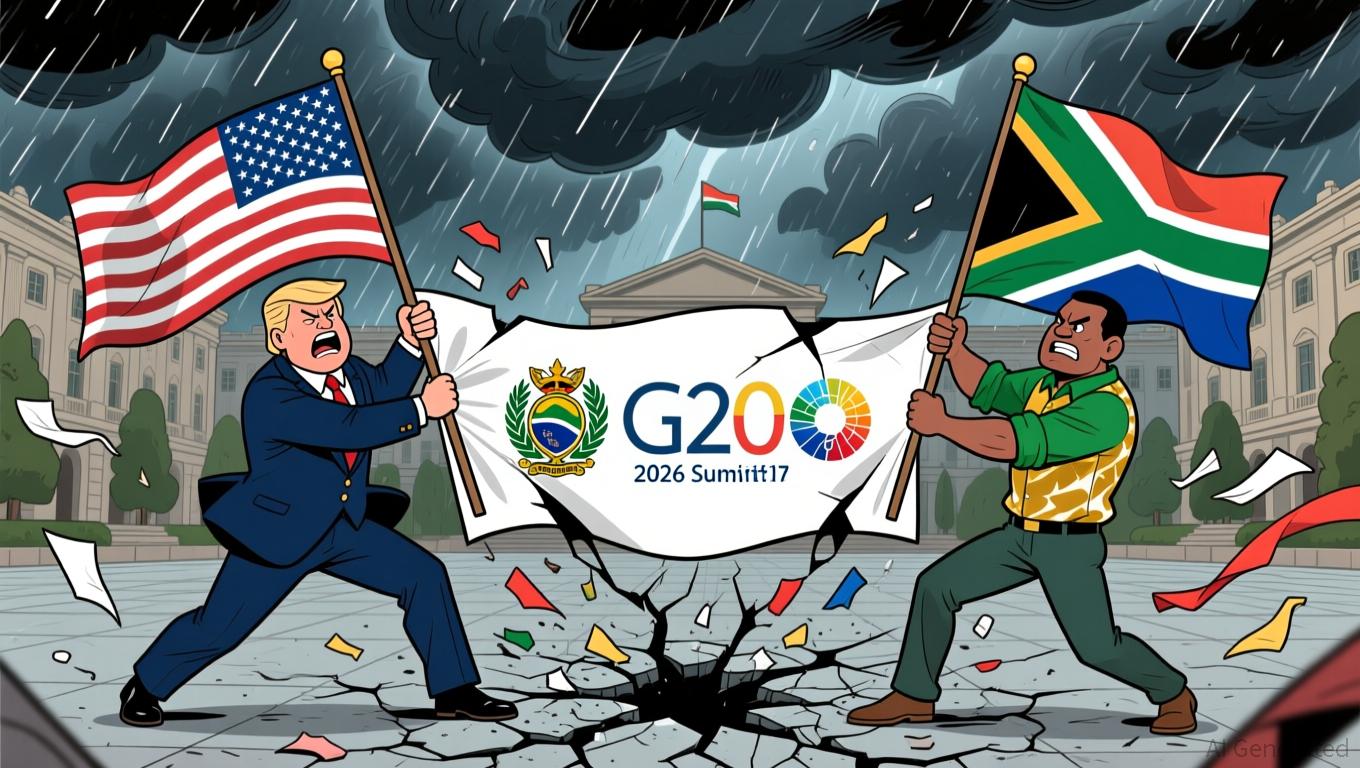Trump's G20 Gambit: Power Plays Over Global Consensus
Trump Excludes South Africa from 2026 G20 Summit
Former President Donald Trump has announced that South Africa will not be invited to the 2026 G20 summit, which is set to take place at his Doral golf resort in Florida. Alongside this exclusion, Trump declared an immediate halt to all U.S. financial support and aid to South Africa. He justified these actions by accusing South Africa of mistreating its white Afrikaner minority and mishandling diplomatic protocols during the latest G20 meeting in Johannesburg. The United States had already skipped this year’s summit, criticizing South Africa’s agenda and dismissing the country’s policies as promoting unfounded claims of “genocide.”
The diplomatic conflict intensified when South Africa declined to transfer the symbolic G20 presidency to a lower-ranking U.S. embassy official, a gesture the U.S. requested due to its absence from the summit. South Africa’s Foreign Minister, Ronald Lamola, rejected the idea, stating that only a senior official or head of state should oversee such a handover.
In response to these tensions, the U.S. has further distanced itself from South Africa by expelling the South African ambassador earlier in the year and capping refugee admissions from the country at 7,500 annually, with a preference for white South Africans.

During South Africa’s G20 presidency in 2025—the first time the role was held by an African nation—the summit concluded with a declaration focusing on climate change and global inequality. These priorities clashed with Trump’s economic policies, and the U.S. criticized the final statement as straying from the G20’s tradition of consensus, though the declaration was ultimately adopted.
Trump’s choice to host the next summit at his own golf club has sparked debate. U.S. Treasury Secretary Scott Bessent indicated that the American-led G20 would return to “core issues.” Reports also suggest that the U.S. is considering Poland as a replacement for South Africa in G20 discussions. Poland’s government has developed a close relationship with Trump and has actively sought G20 membership, citing its economic progress and opposition to China.
South African officials have denounced Trump’s statements as misleading, reaffirming their dedication to international cooperation and denying any persecution of Afrikaners. President Cyril Ramaphosa’s office described Trump’s remarks as “regrettable,” but emphasized that U.S. sanctions and boycotts have not deterred South Africa from its diplomatic objectives. Experts caution that the U.S. stance could weaken the G20’s effectiveness as a platform for international collaboration, especially as developing countries push for fairer economic policies.
This episode underscores a broader shift in U.S. foreign policy under Trump, marked by a focus on transactional relationships rather than established diplomatic norms. With South Africa’s exclusion and the potential elevation of allies like Poland, the G20’s future as a unified group is uncertain. As preparations for the 2026 summit continue, the world will be watching to see if Trump’s vision for the G20 can align with the multilateral goals of its members.